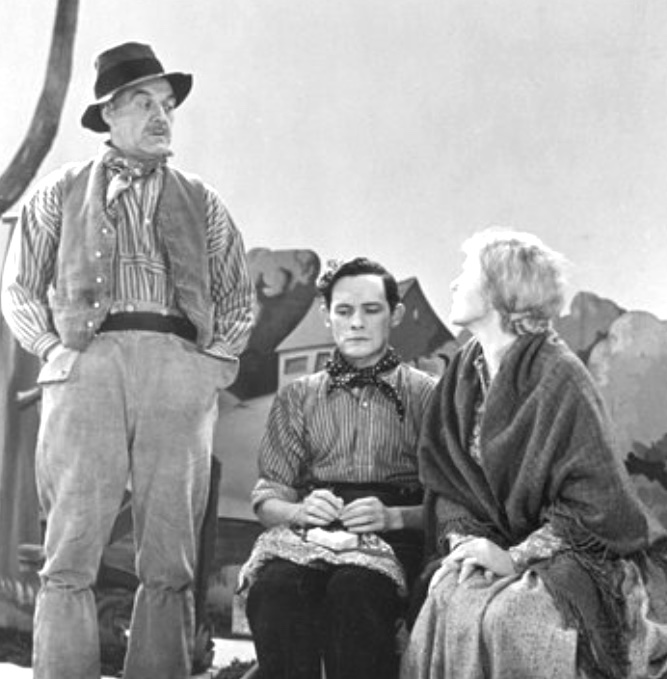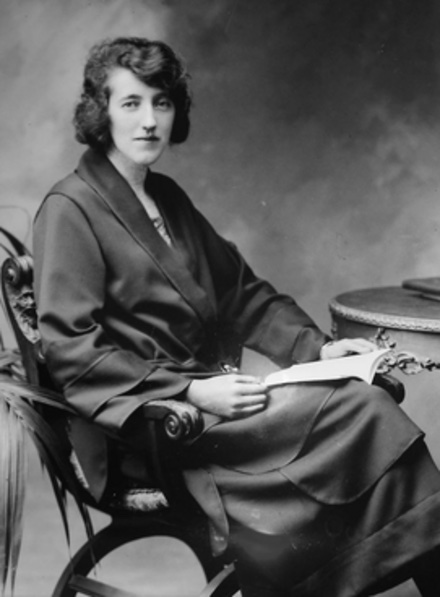OTD in early British television: 3 March 1939

John Wyver writes: The eclecticism and breadth of the drama produced pre-war at Alexandra Palace is indicated by the production on Friday 3 March 1939 of The King of Spain’s Daughter by Teresa Deevy. This was a play that had premiered at the Abbey Theatre, Dublin on 29 April 1935, and was now presented by producer Denis Johnston with Phyllis Ryan as Annie Kinsella (above, right). Also in the cast were Brefni O’Rorke (above, left), Patrick Boxhill (centre), Ann Clery and Tony Quinn.
As Úna Kealy has written of the play,
This brief and potent drama can be read as a feminist intervention into Irish social and cultural life as, in Annie Kinsella, Deevy creates a woman who dares to imagine the world differently.
Born in 1894 in Waterford, Deevy was the youngest of 13 sisters. She became deaf at the age of 19, leanred to lip-read in London, and began writing stories and articles on coming back Ireland in 1919. As Wikipedia tells us:
Deevy returned to Ireland… during the Irish War of Independence, and this greatly influenced her writing and ideology. She was strongly involved in the nationalist cause, and much admired Constance Markievicz. She joined the Cumann na mBan, an Irish women’s Republican group and auxiliary to the Irish Volunteers. Her Republican, and even proto-feminist, views can be clearly seen in plays such as Katie Roche and The King of Spain’s Daughter.

Written by Frances Clarke, her entry in the Dictionary of Irish Biography is here, and there is a fine essay by Steven Griffith for the Celtic Junction Arts Center, which describes her as ‘Ireland’s little known Chekhov’ and notes that
Deevy’s best known one-act, The King of Spain’s Daughter introduces her signature theme, a woman struggling to find herself and to choose the right path while being battered (sometimes literally) by the men who surround her. In the play, Annie Kinsella must choose a life of factory drudgery or a loveless marriage.
Her archive is held by Maynooth University Library, and Úna Kealy’s detailed introduction to The King of Spain’s Daughter is here [Link: pdf], in which the author writes:
The play examines and critiques how individuals and collectives in 1930s Ireland responded to coercive and directional power to reduce the horizons of hope, ambition, intimacy and potential for Irish women and men.
Another of Deevy’s one-act plays, In Search of Valour, was also produced for television by Denis Johnston, also with Abbey actor Phyllis Ryan, in June 1939. Of her performance in The King of Spain’s Daughter, The Times wrote:
Another young actress who we shall look forward to seeing again on the television screen is Miss Phyllis Ryan, who is still in her teens and who was brought over from Ireland to play [the role]… She gave a most arresting performance which it is not easy to forget.
After the war Ryan became a producer, and in the 1960s and 1970s her company Gemini Productions was a major independent producer of Irish theatre.
Leave a Reply